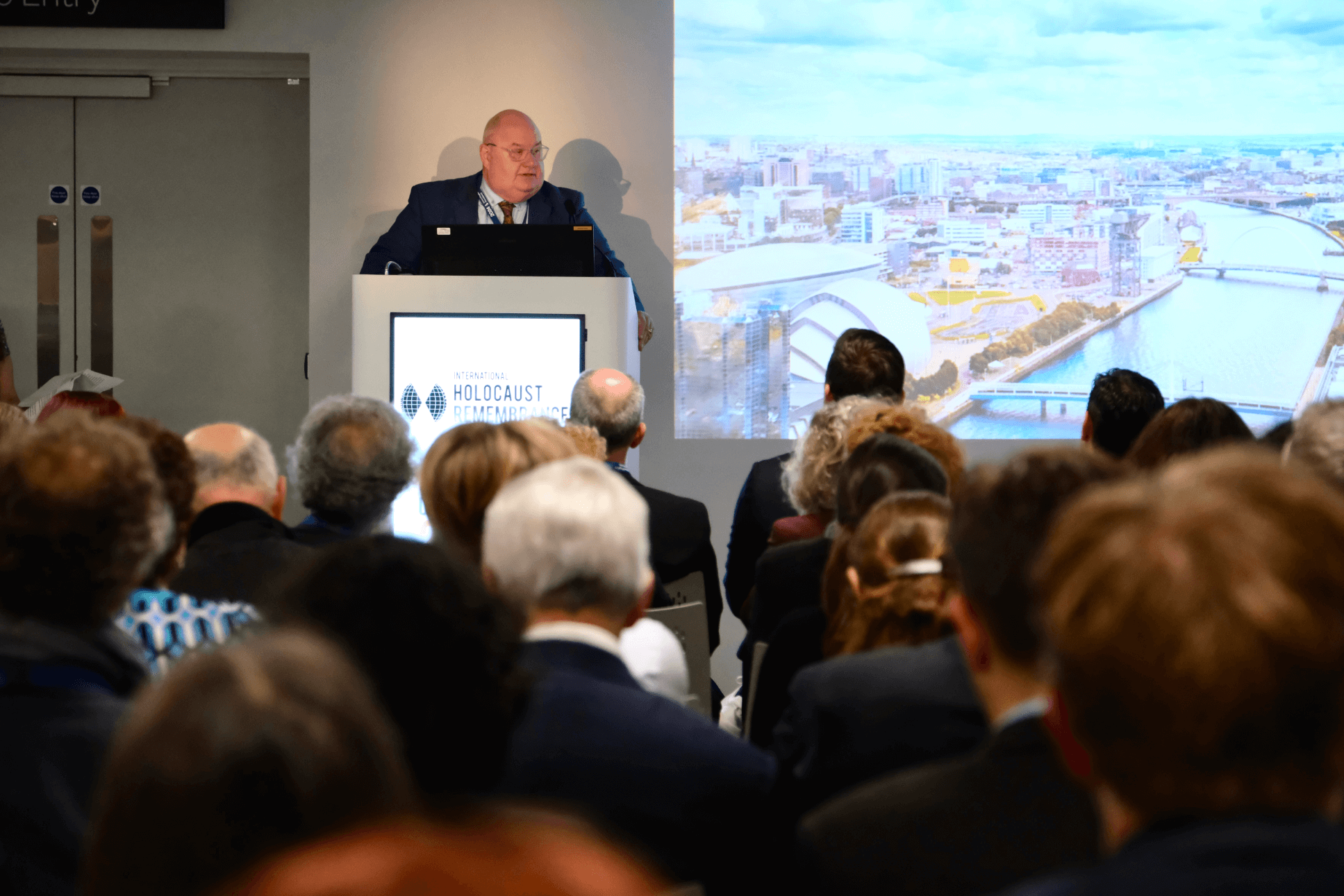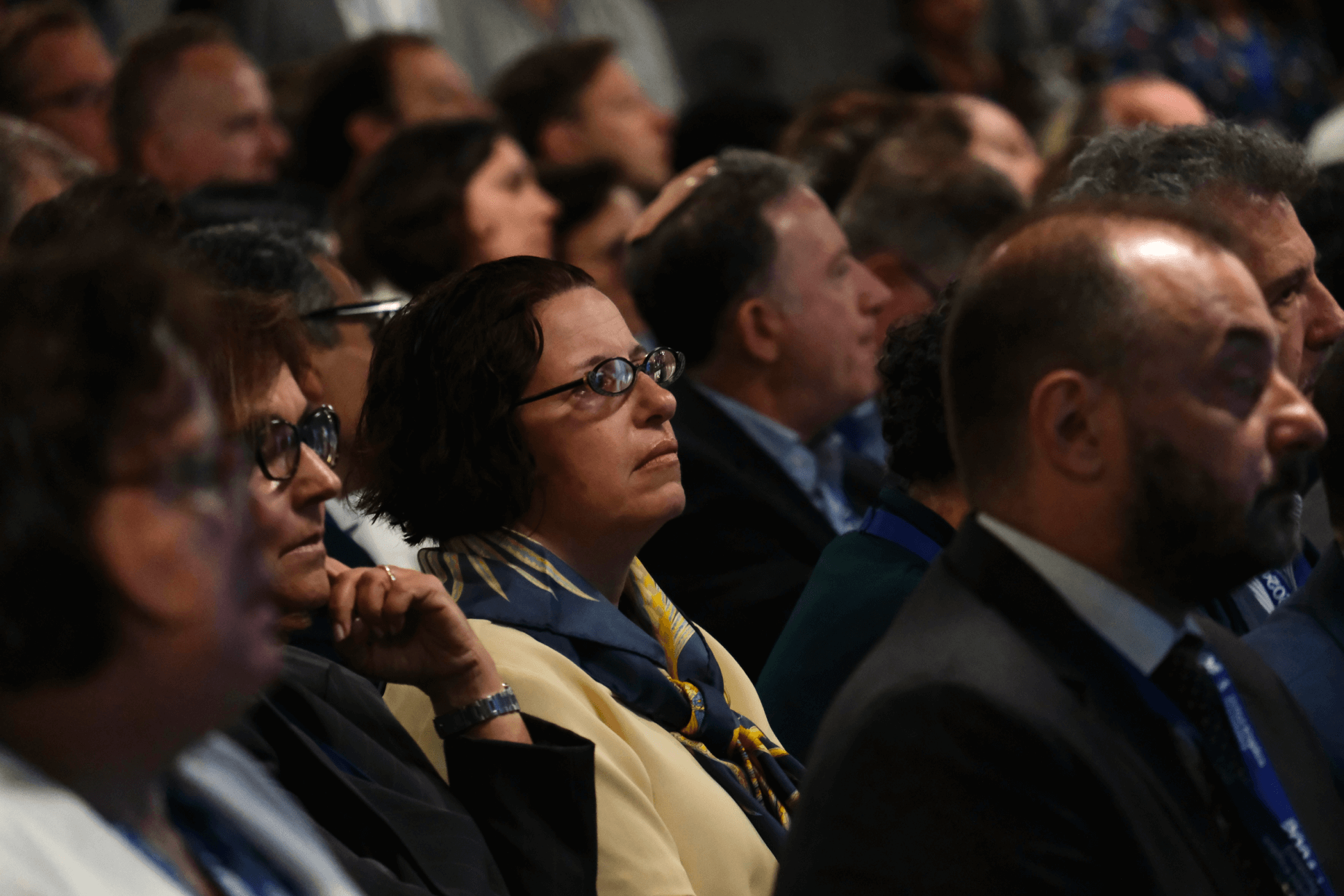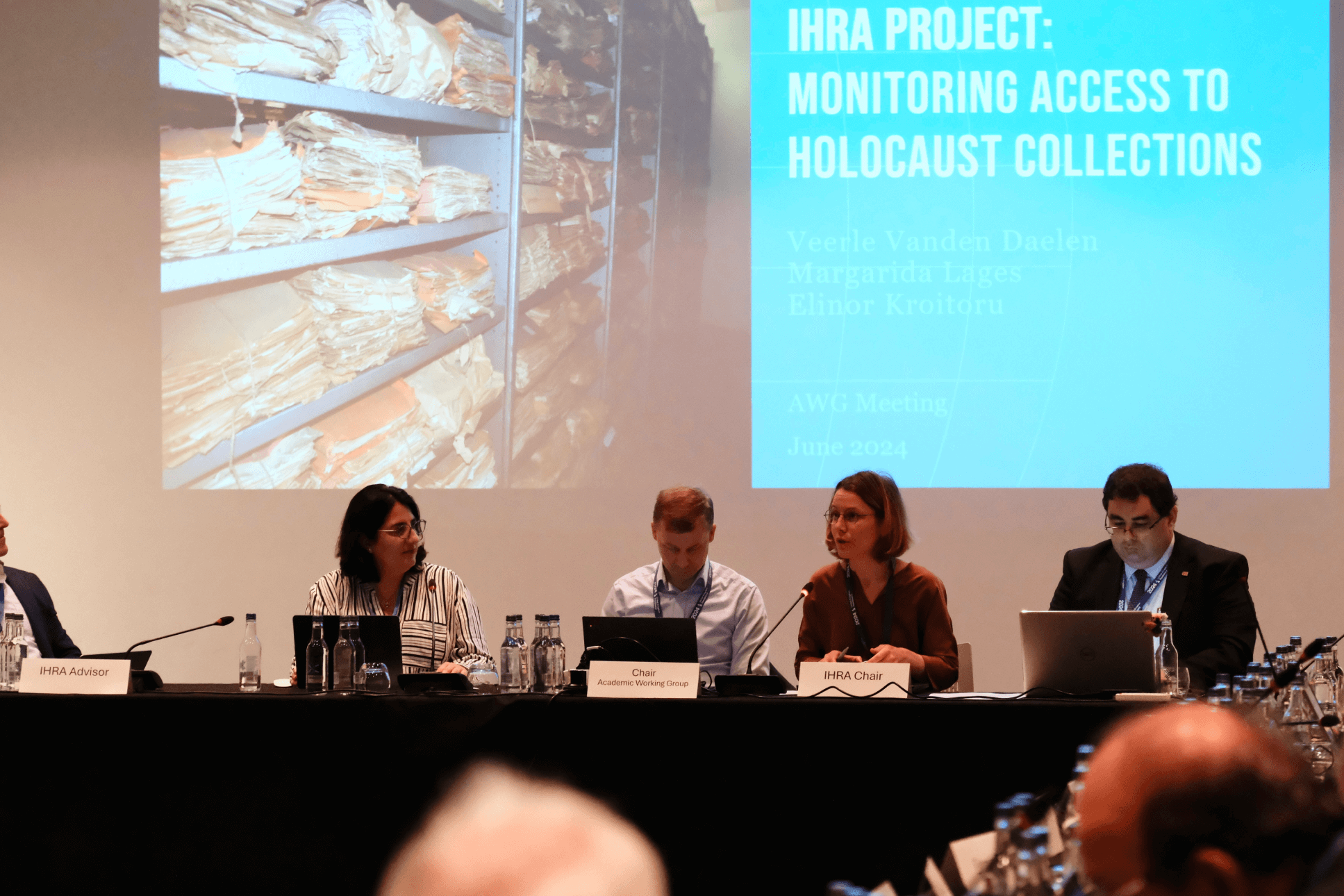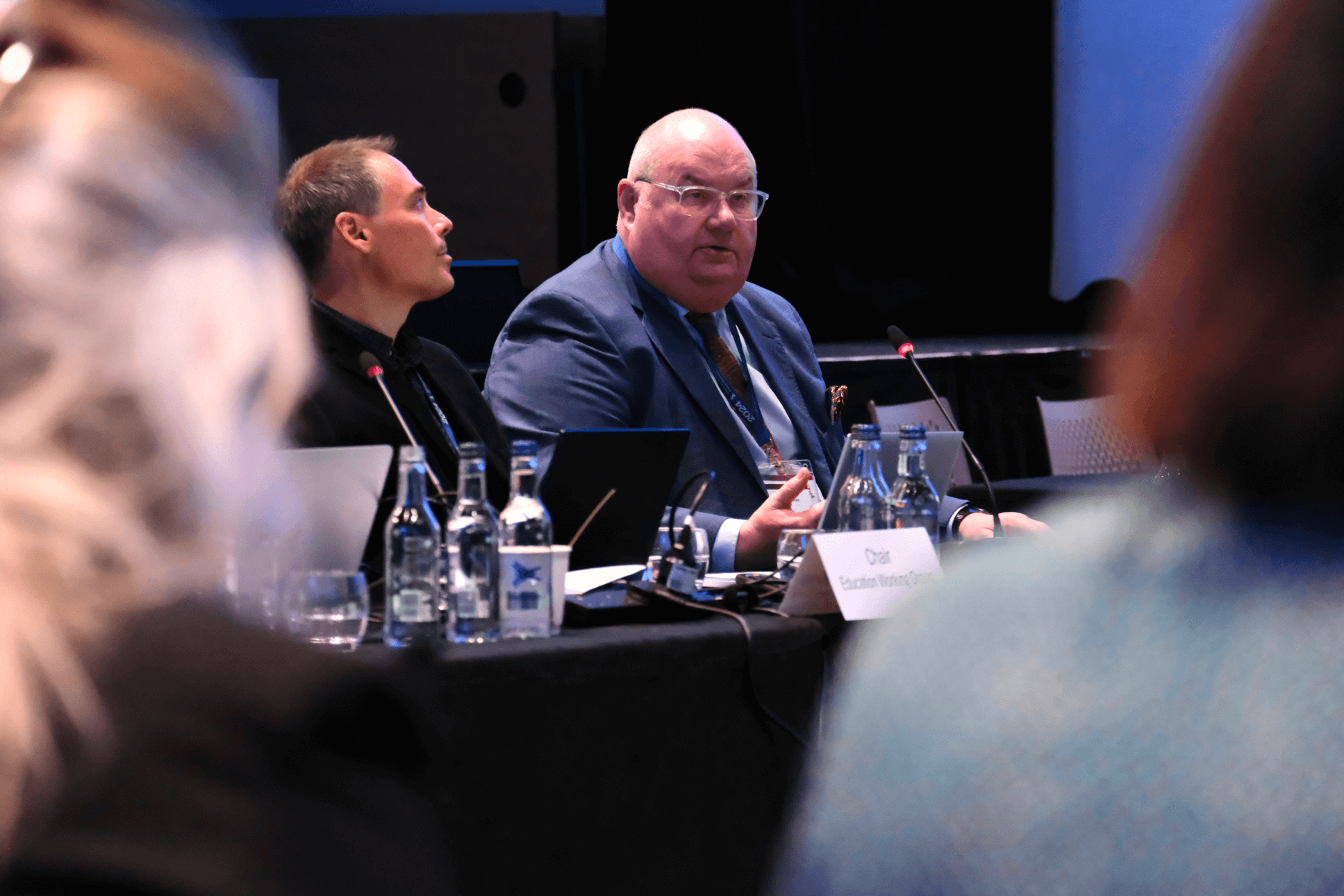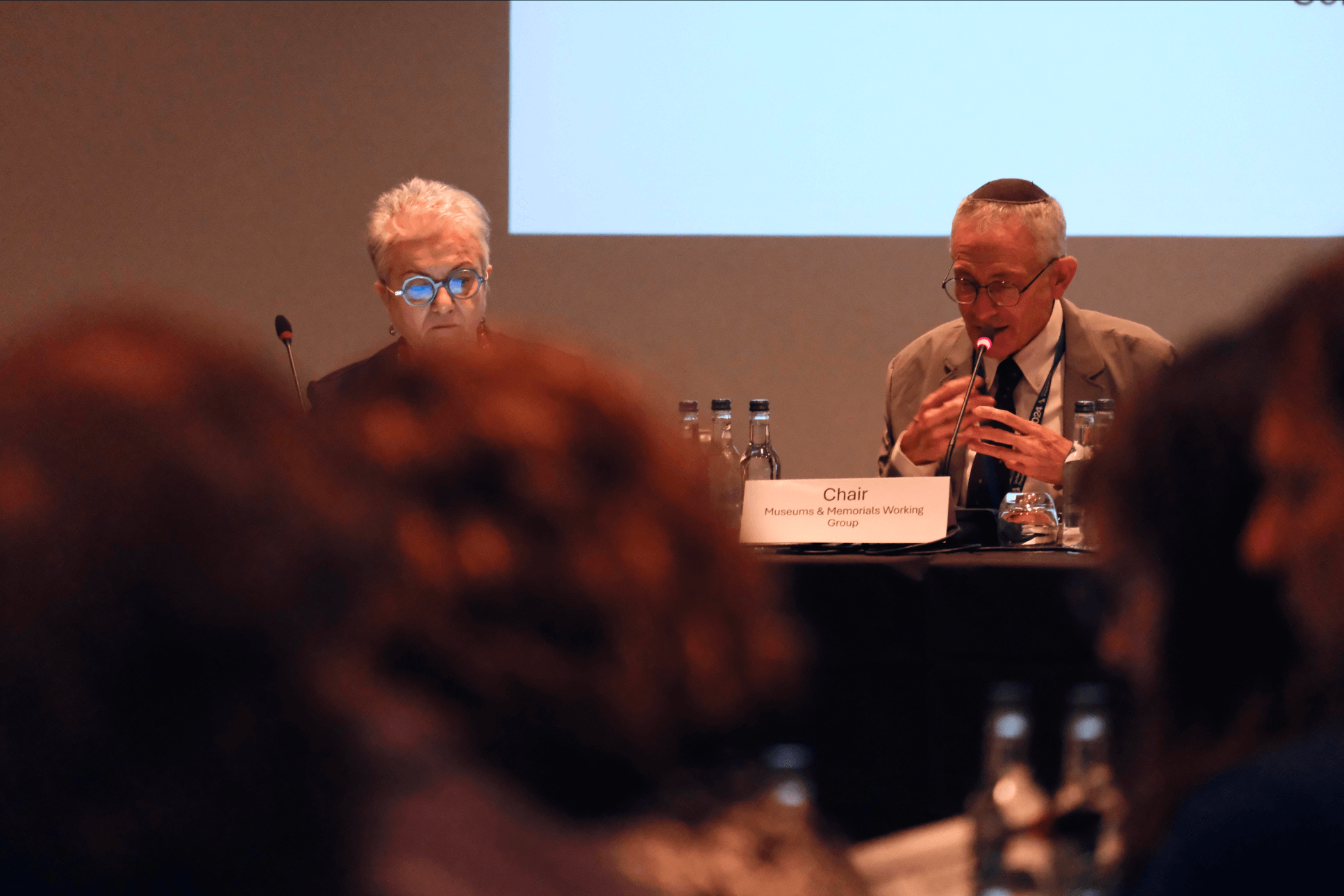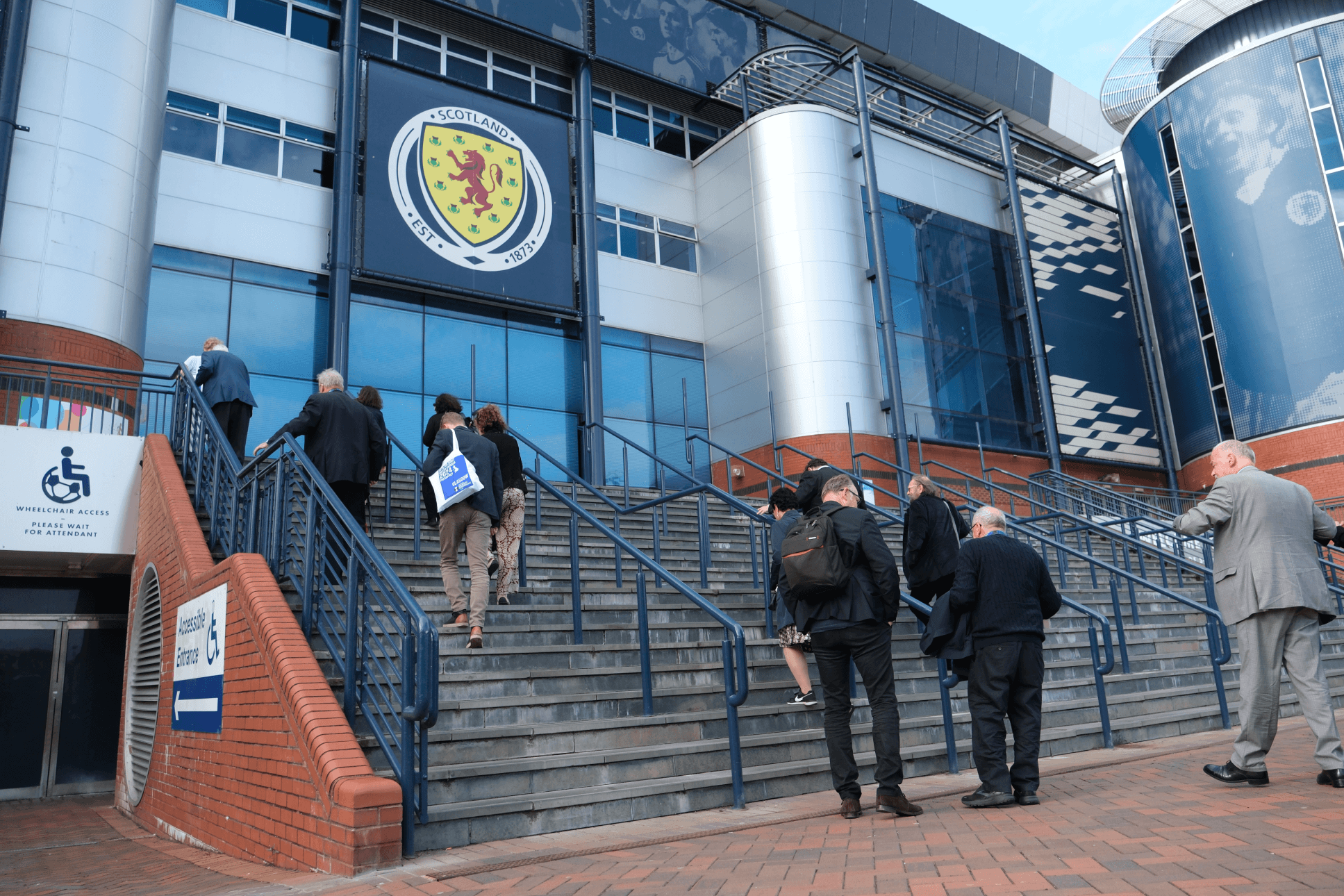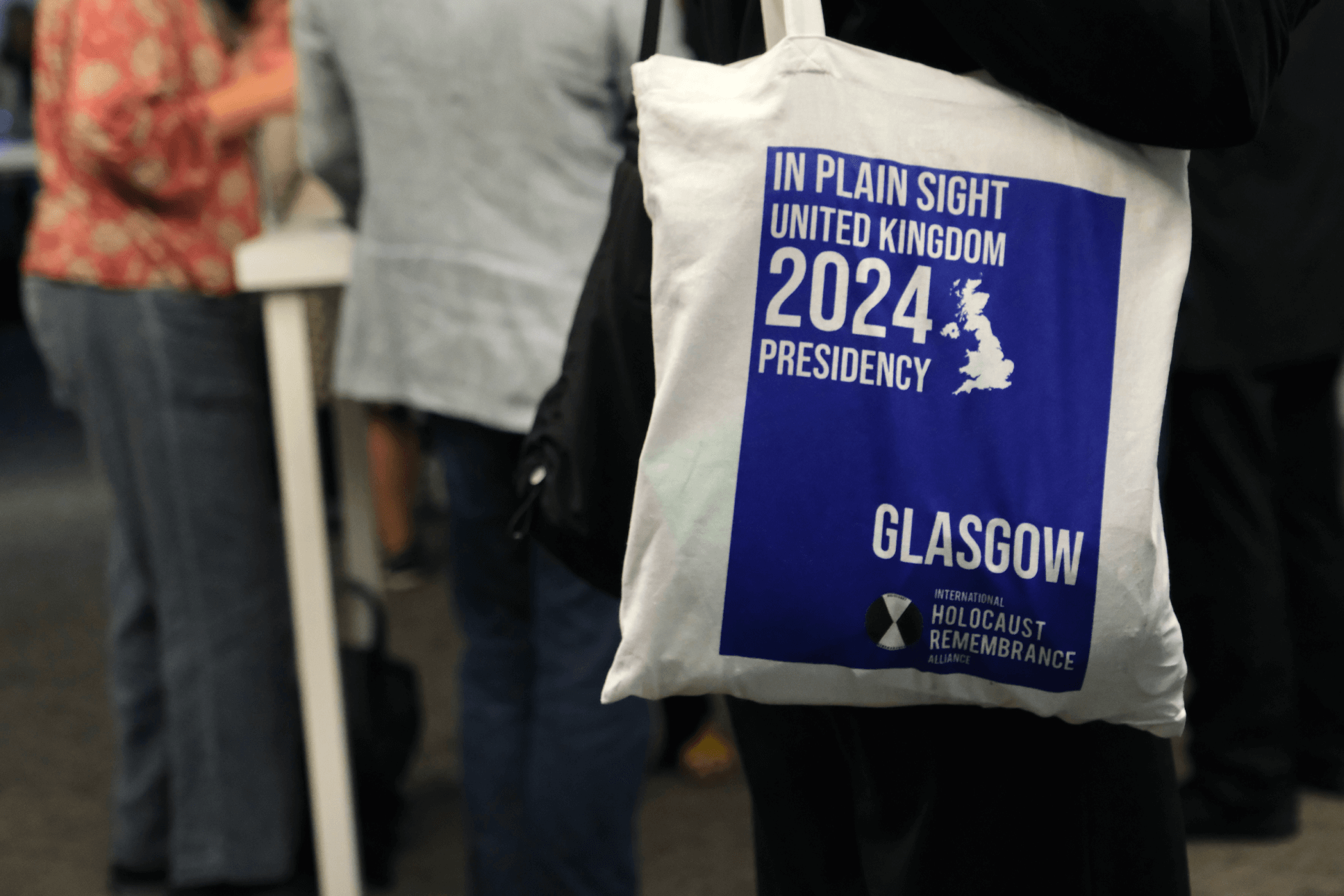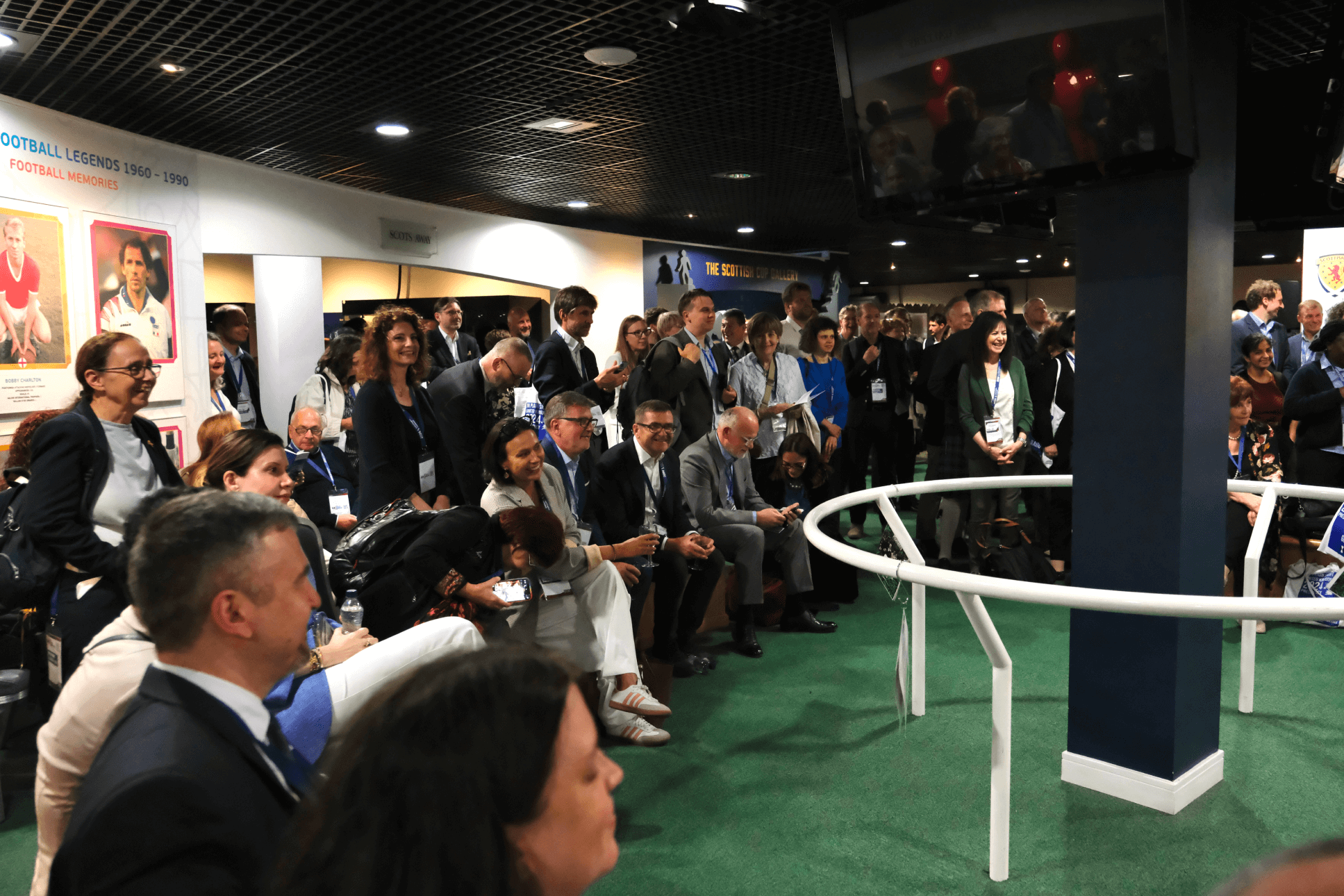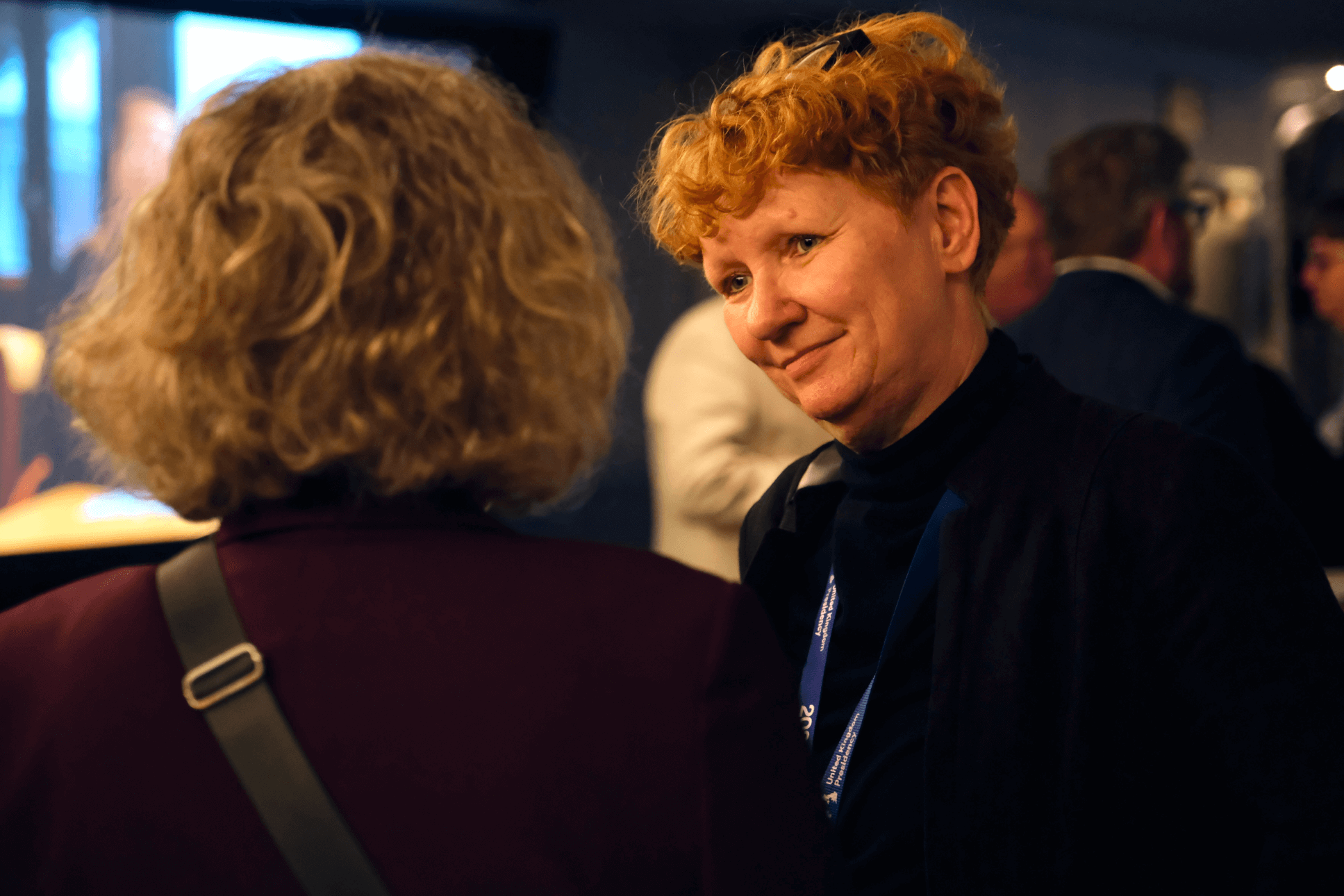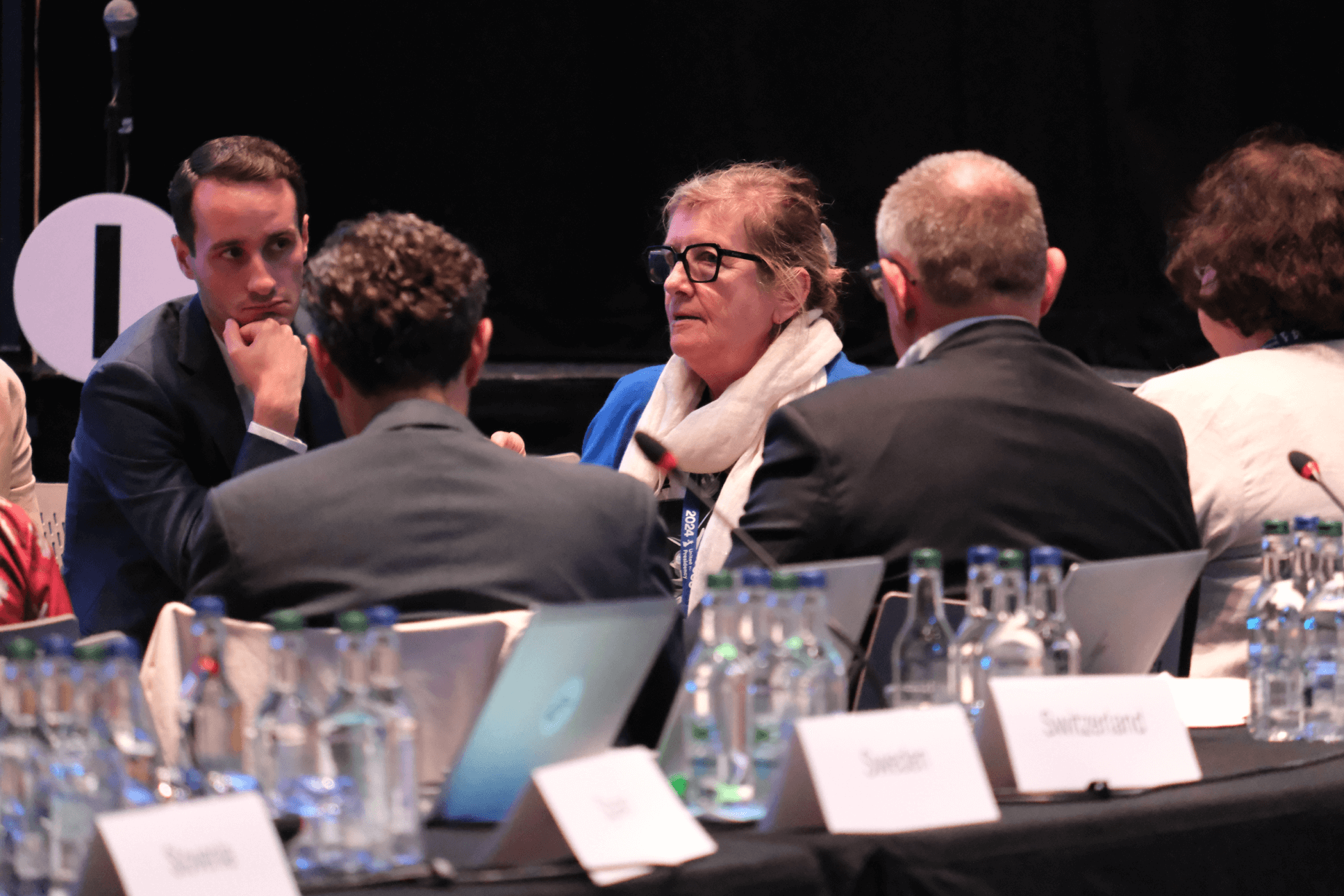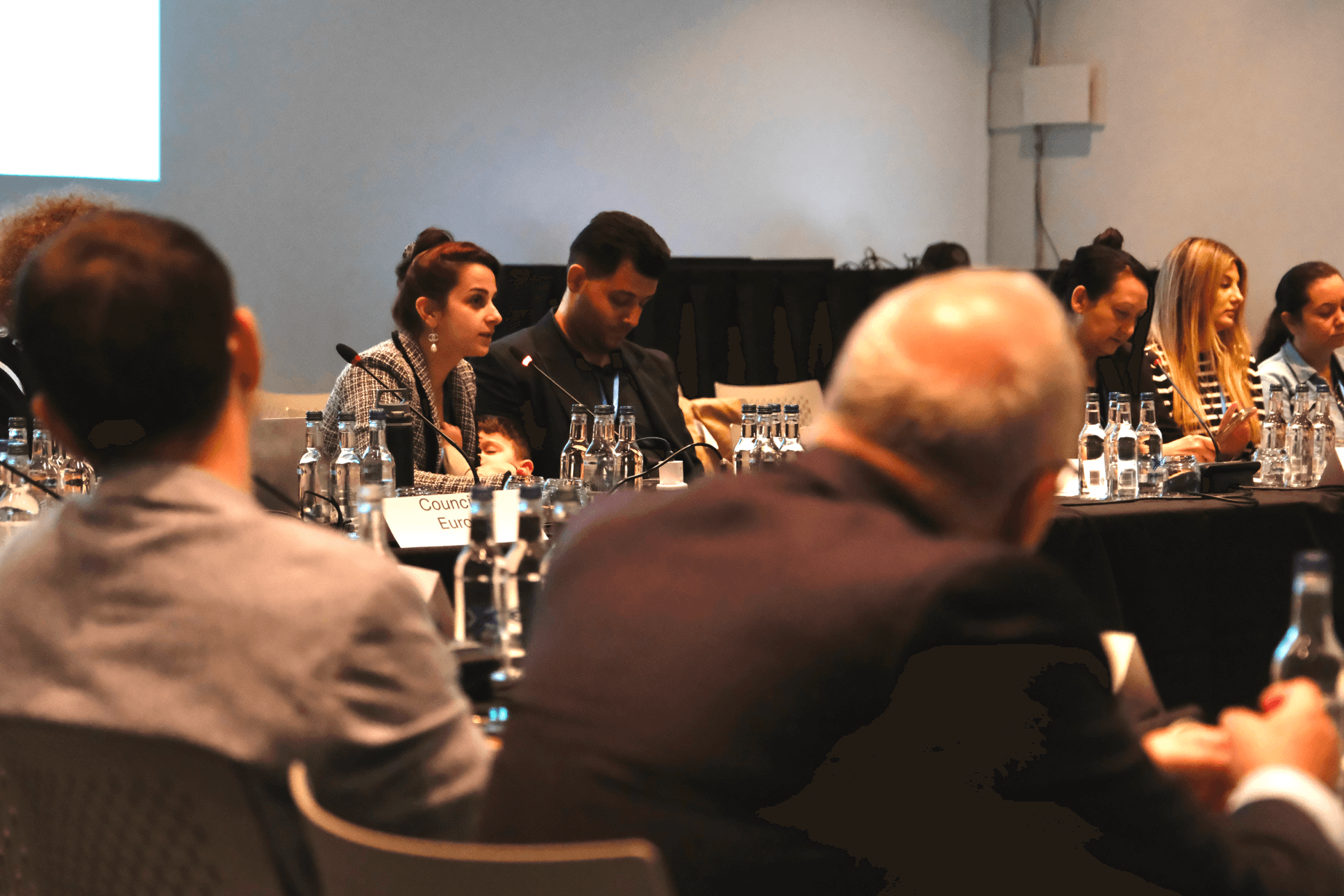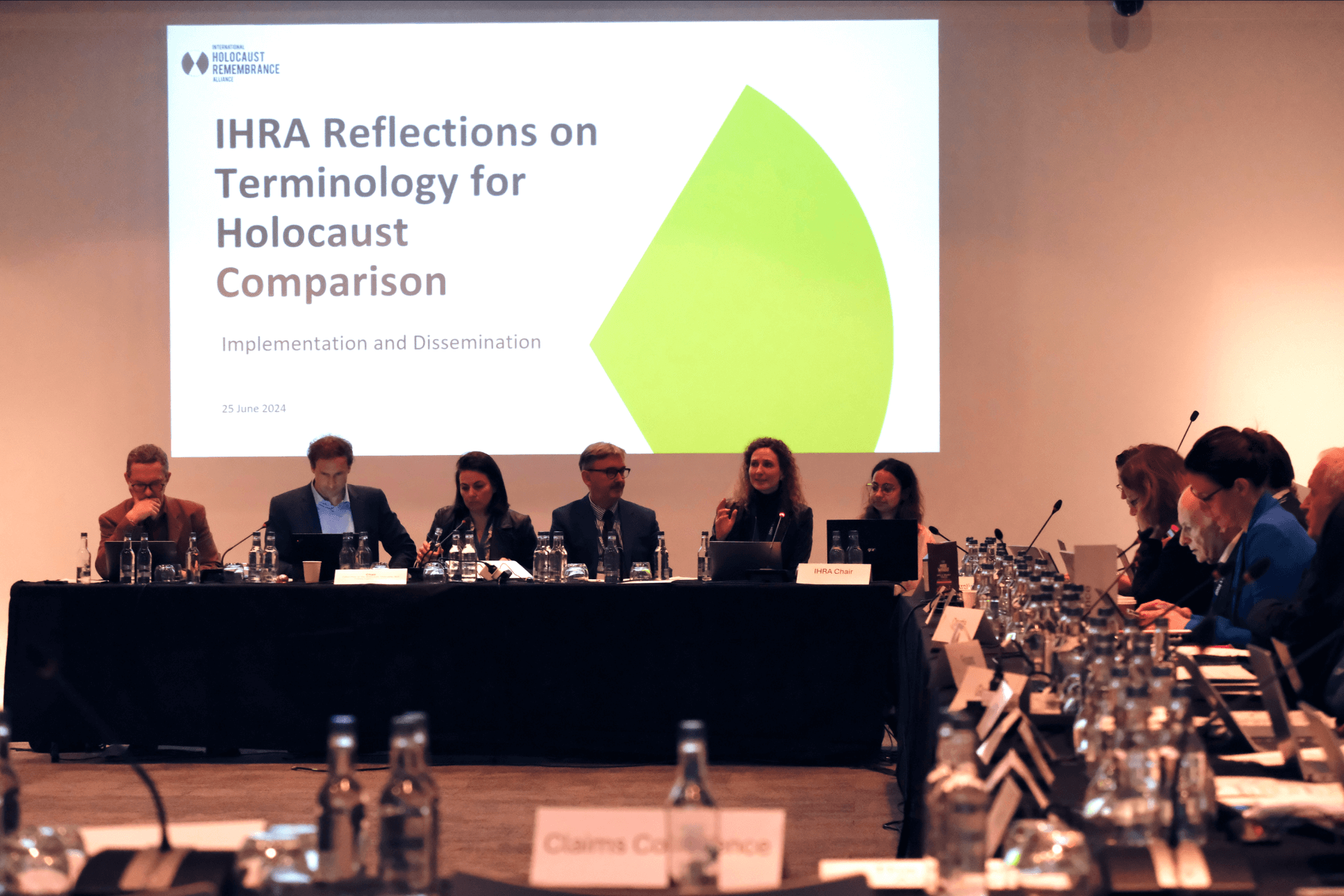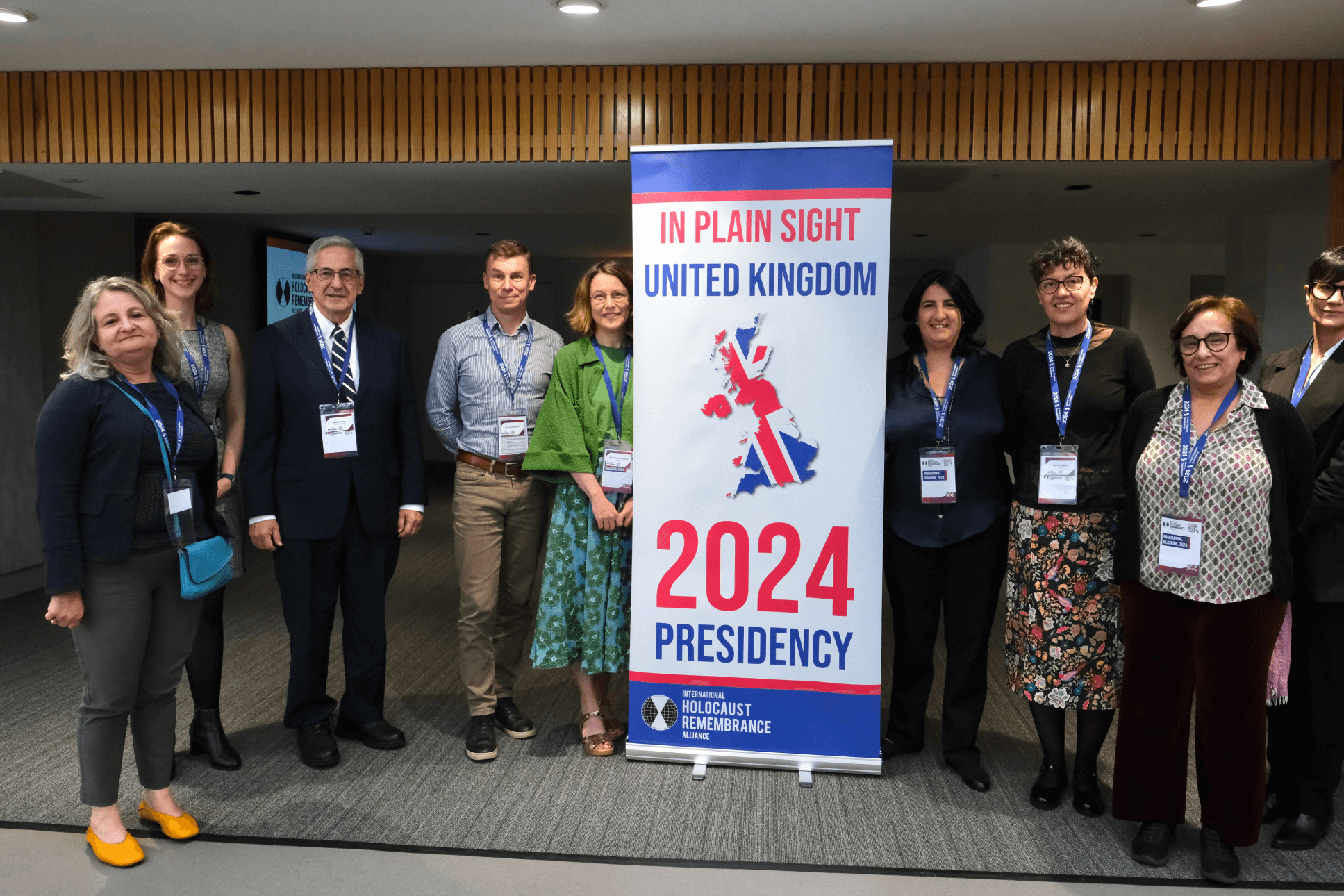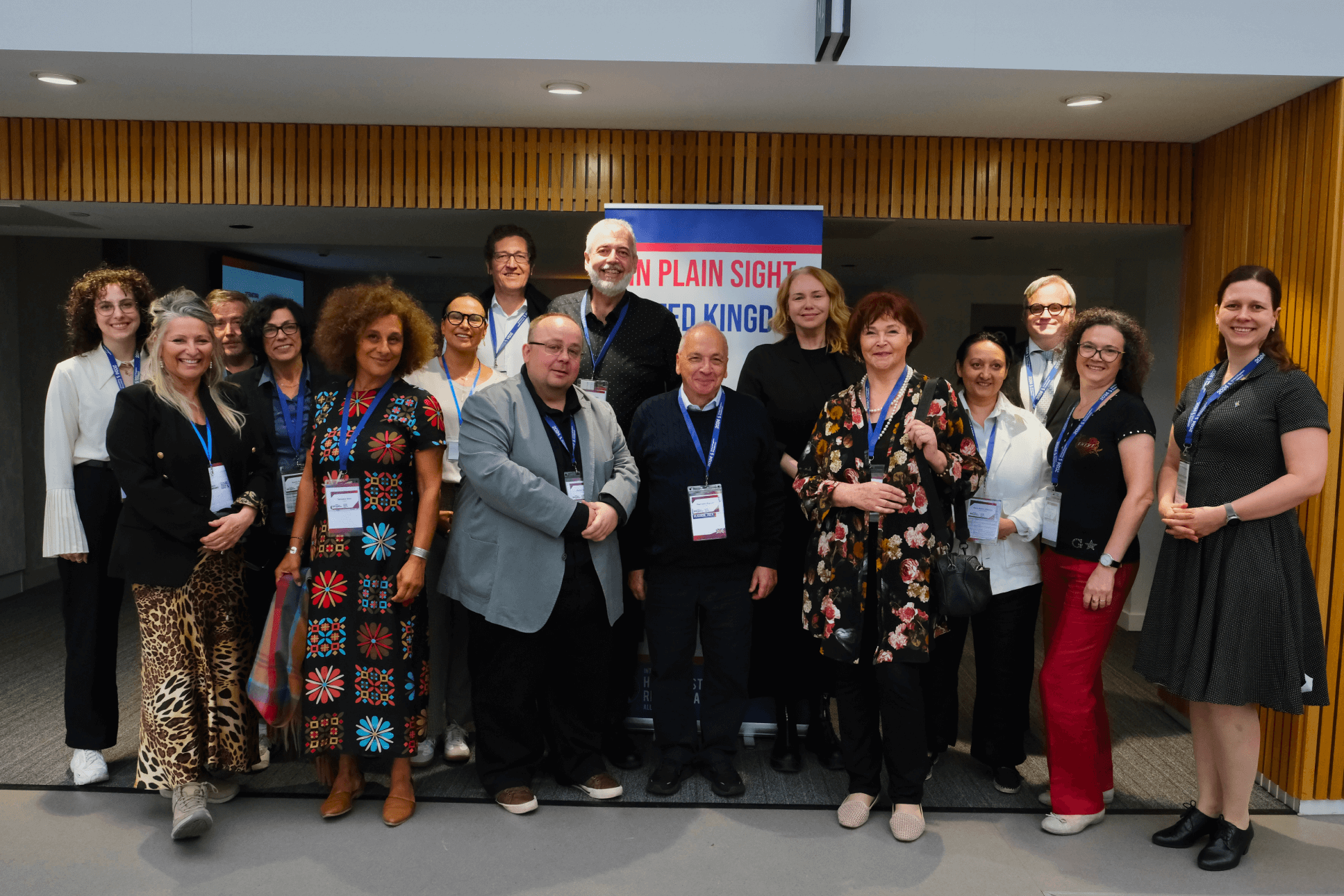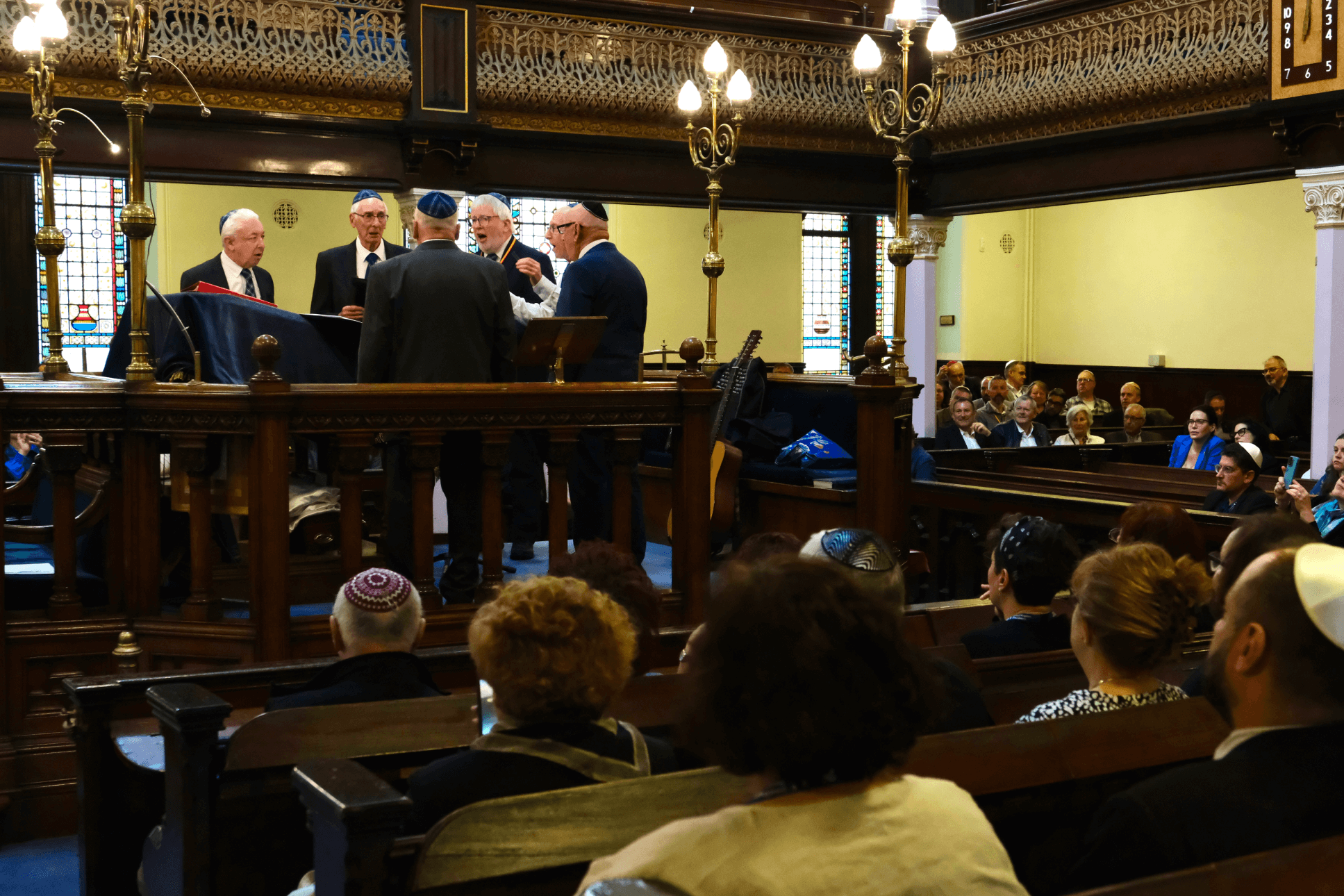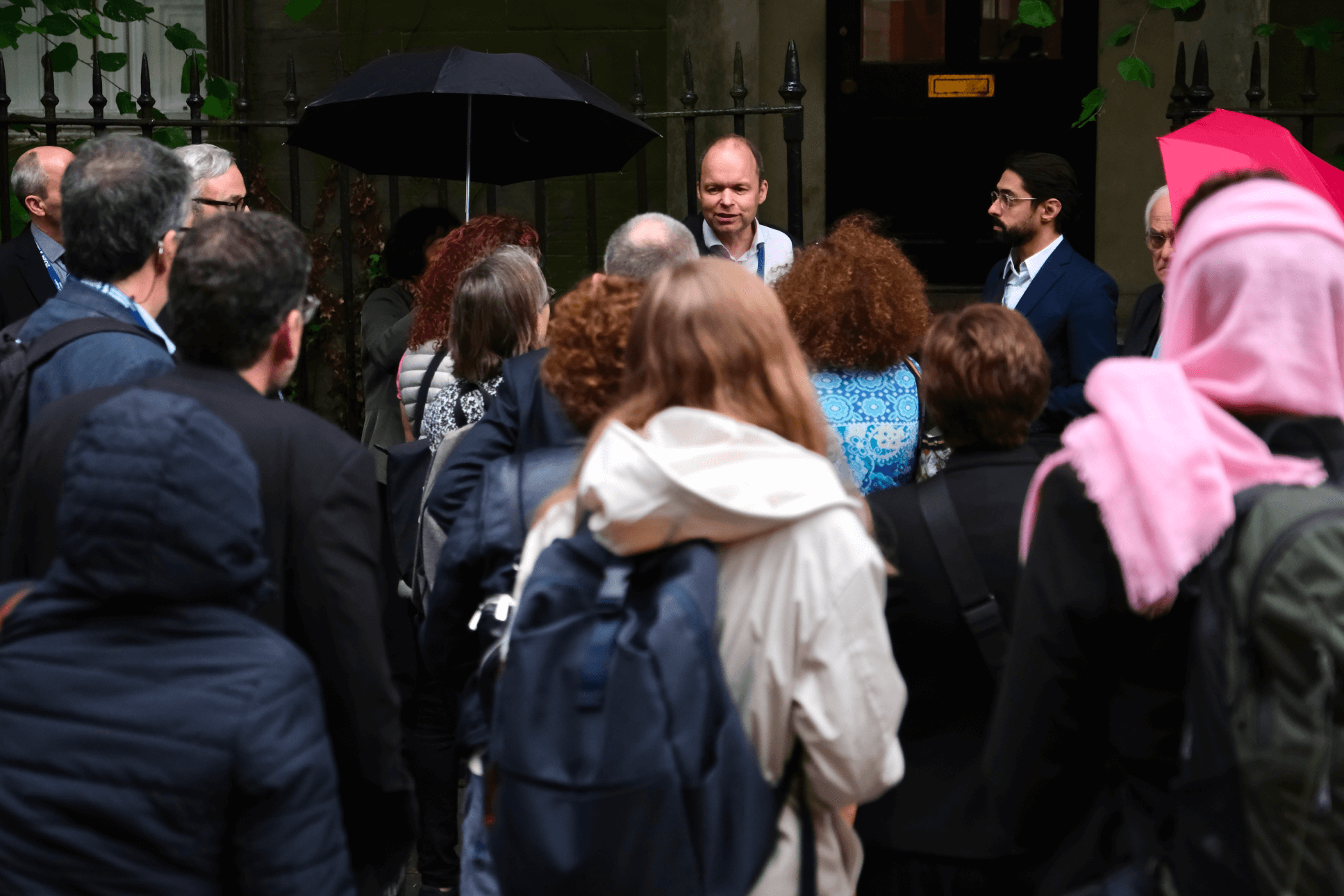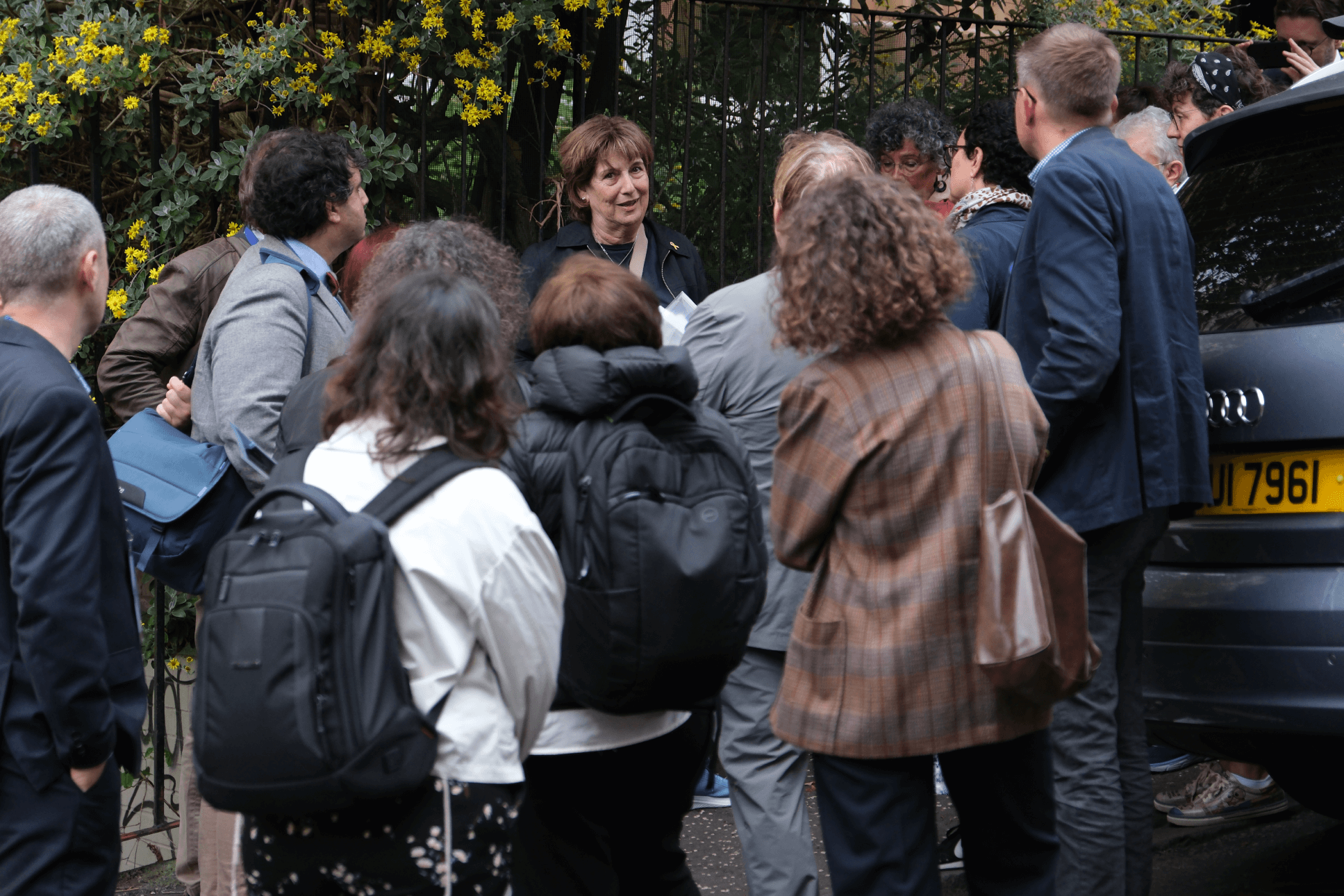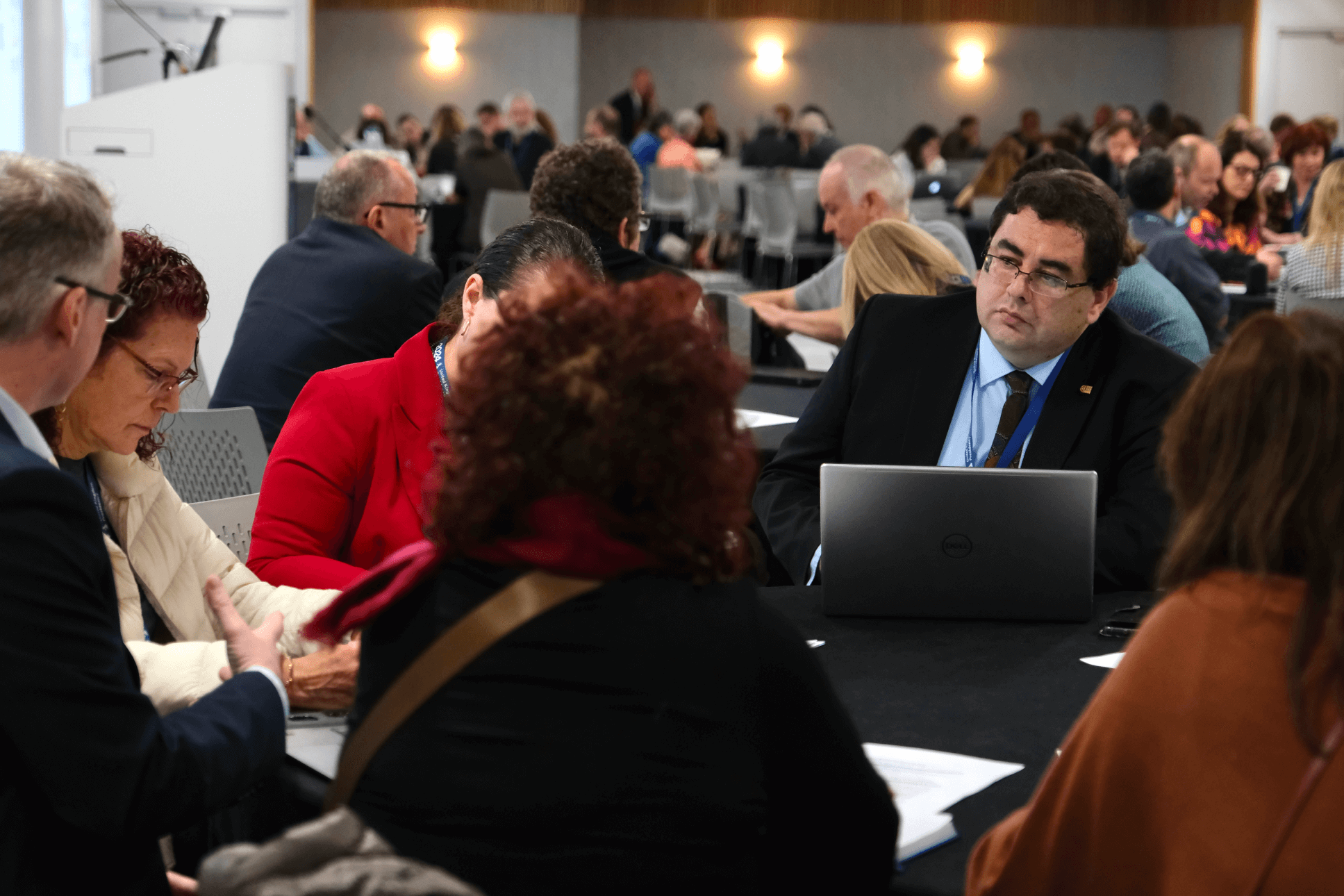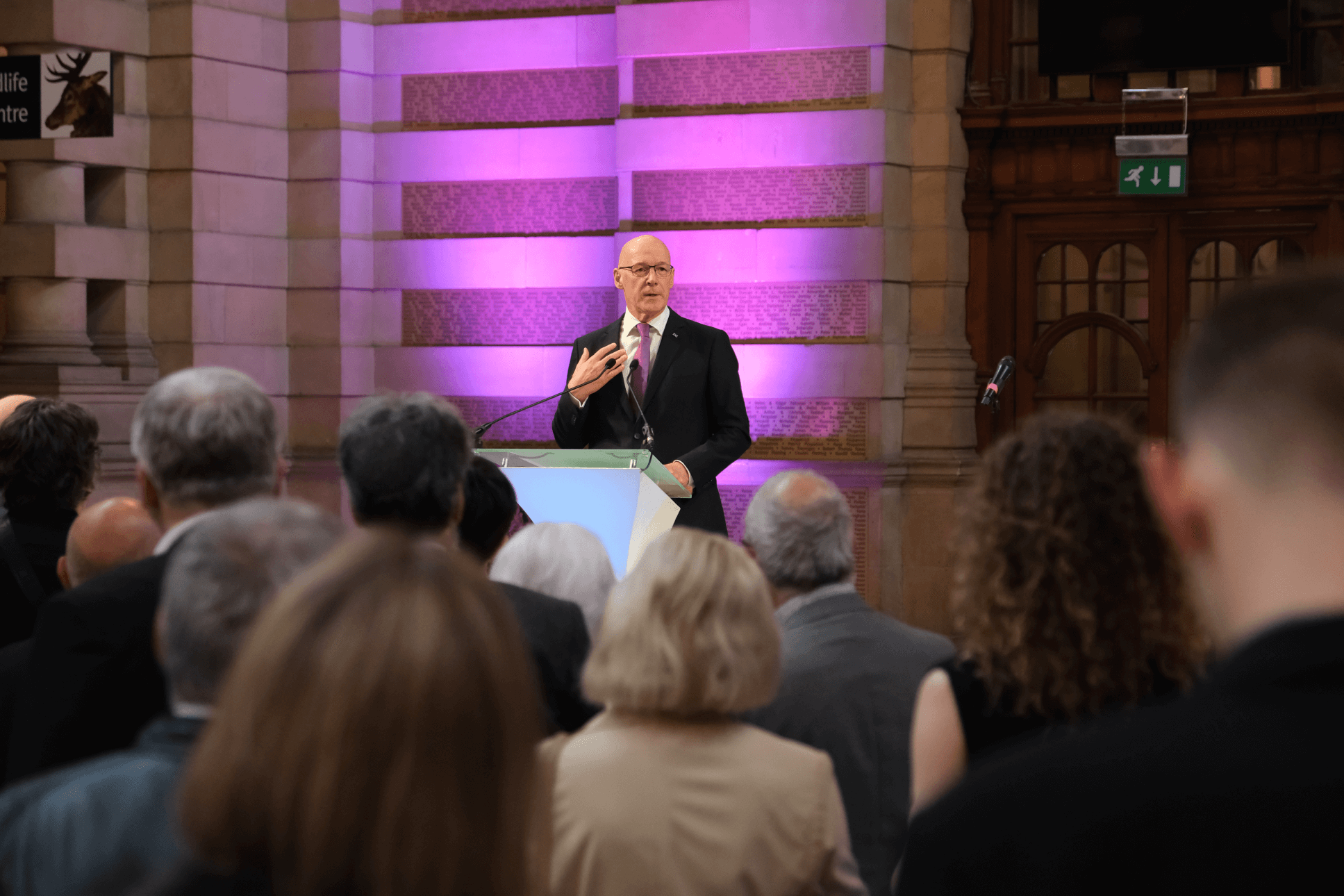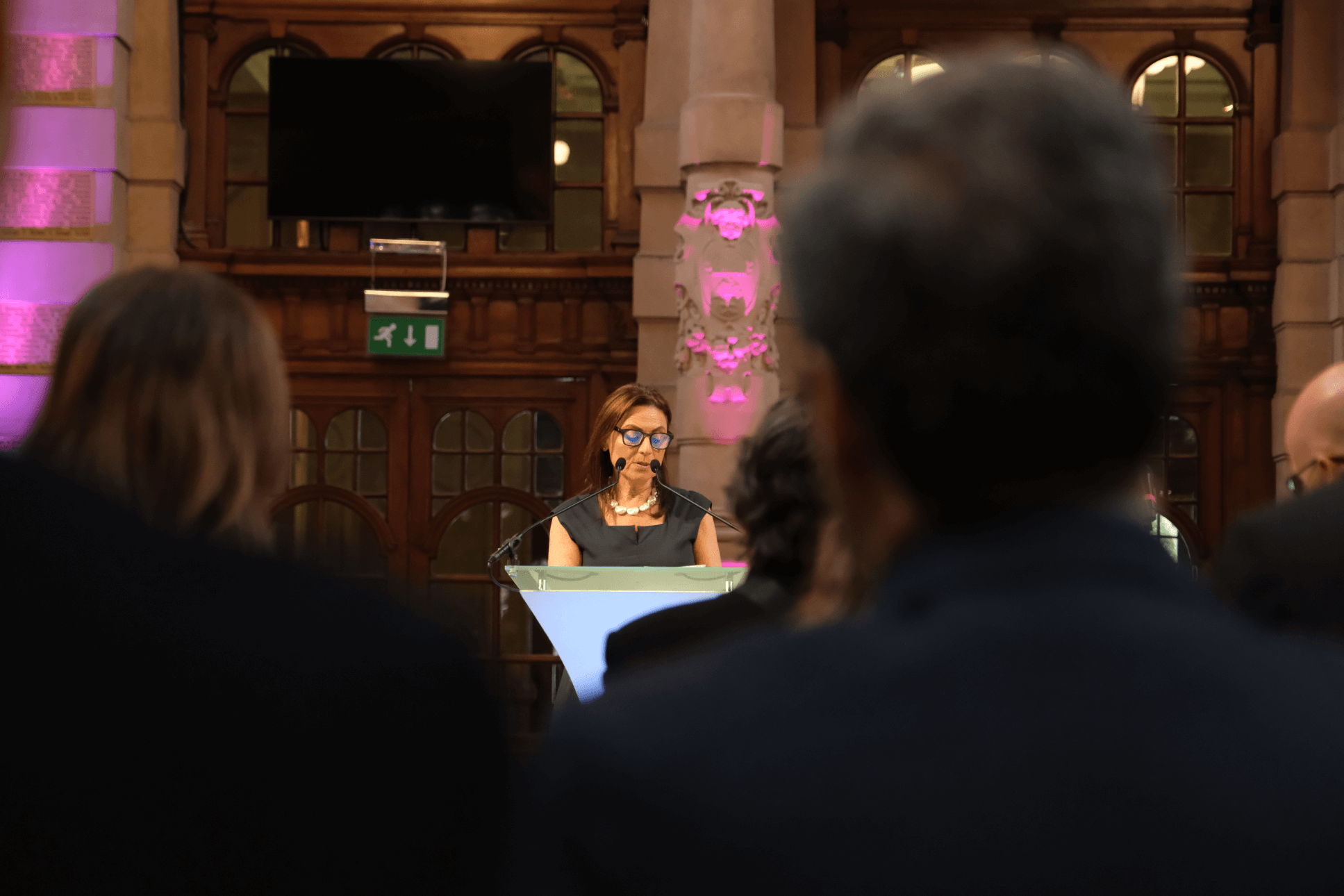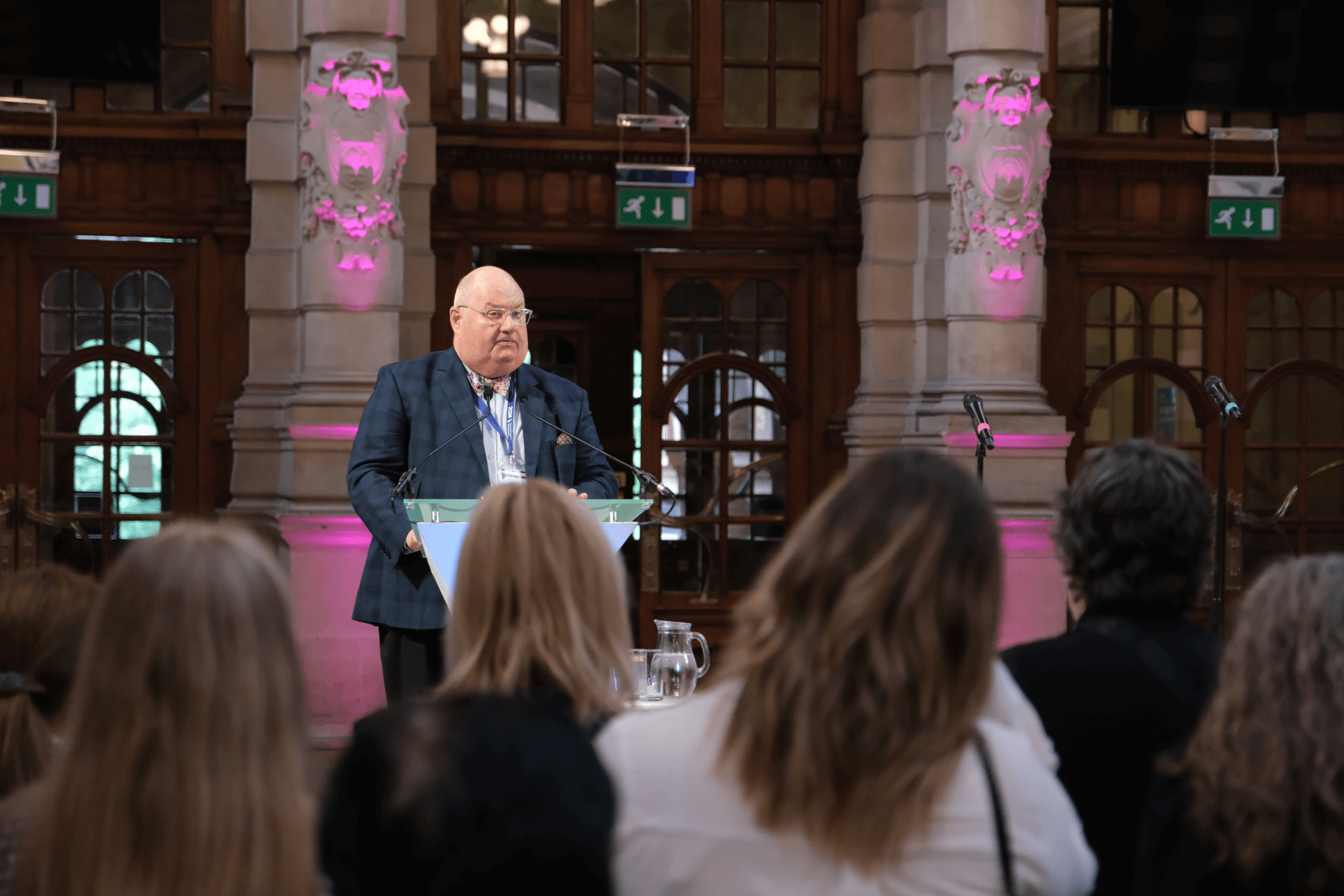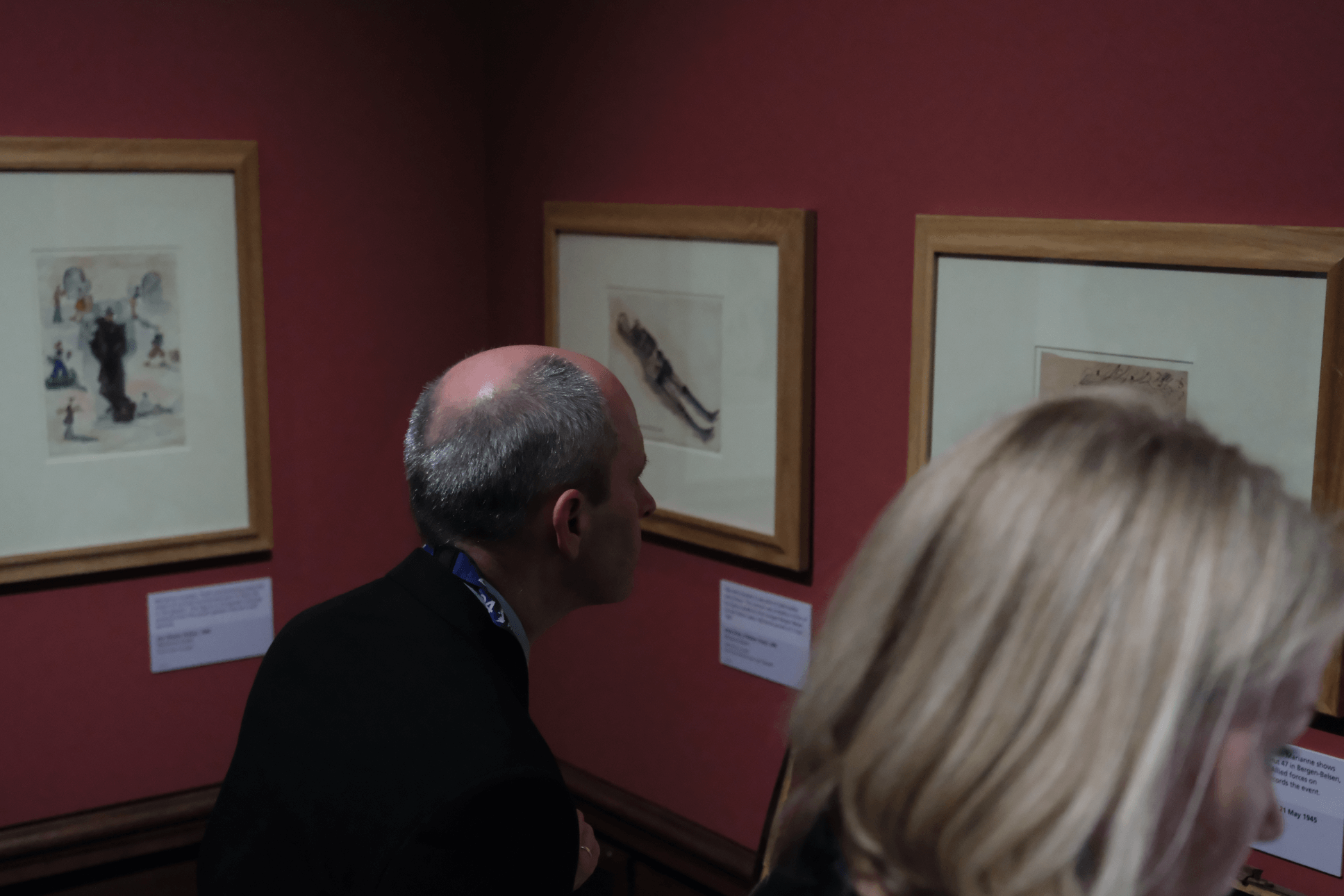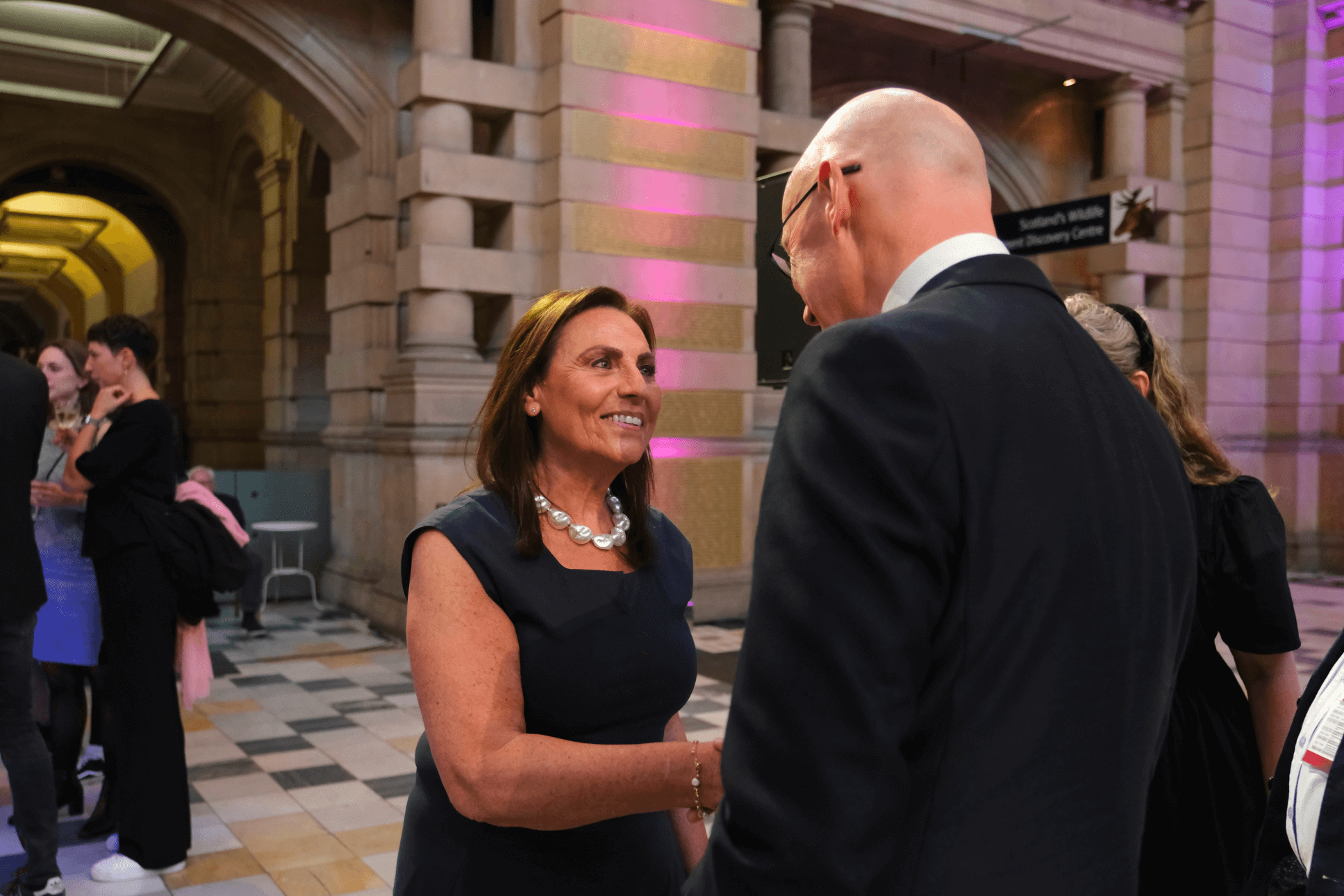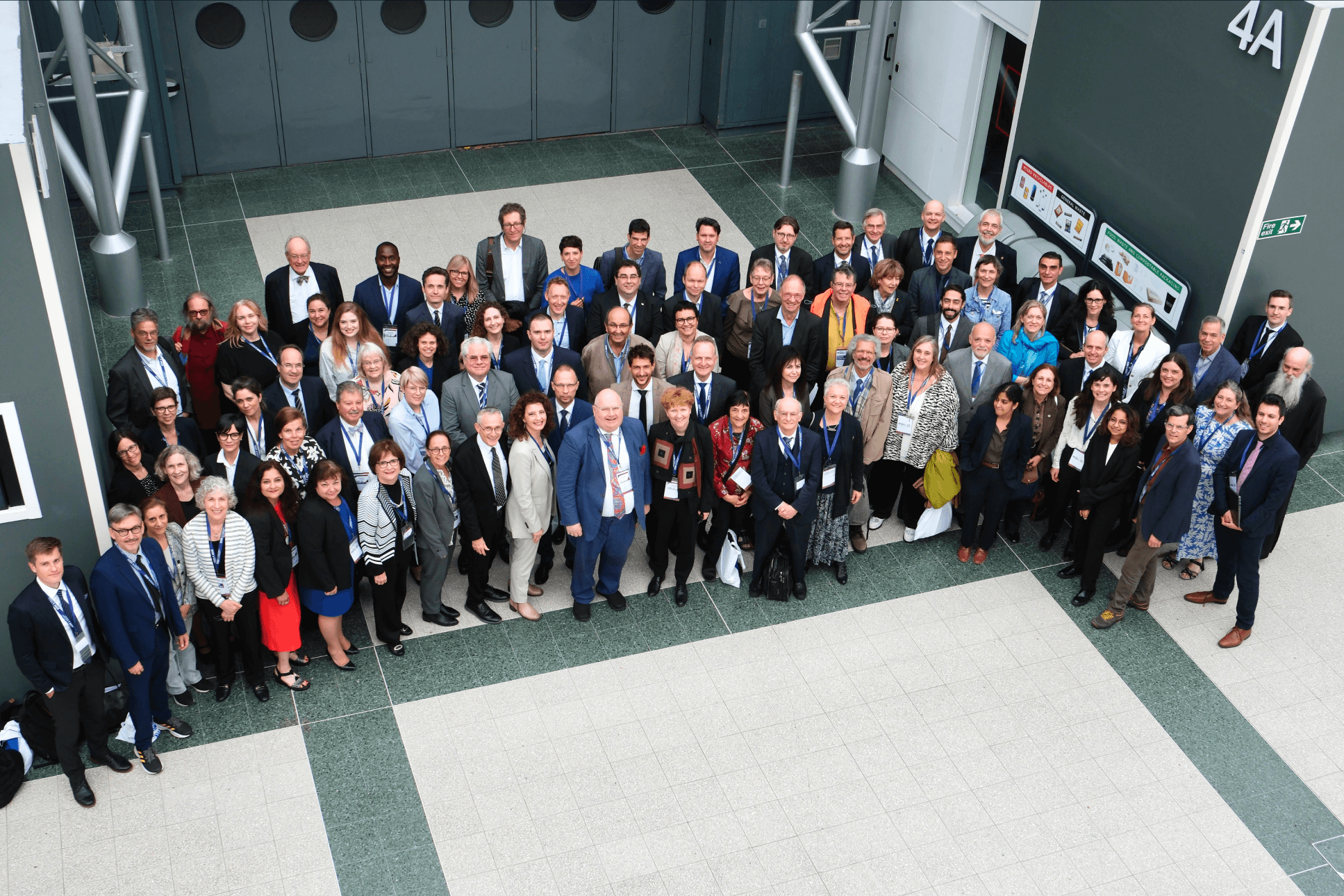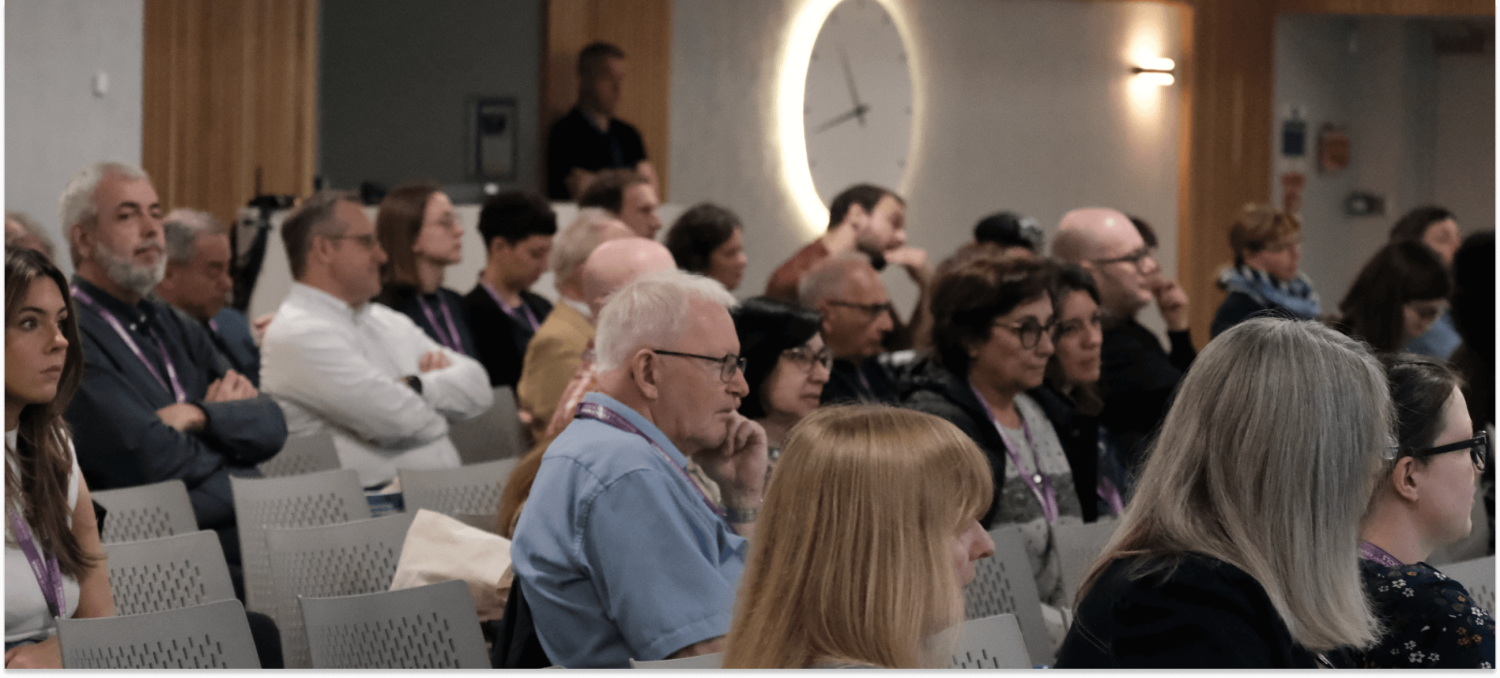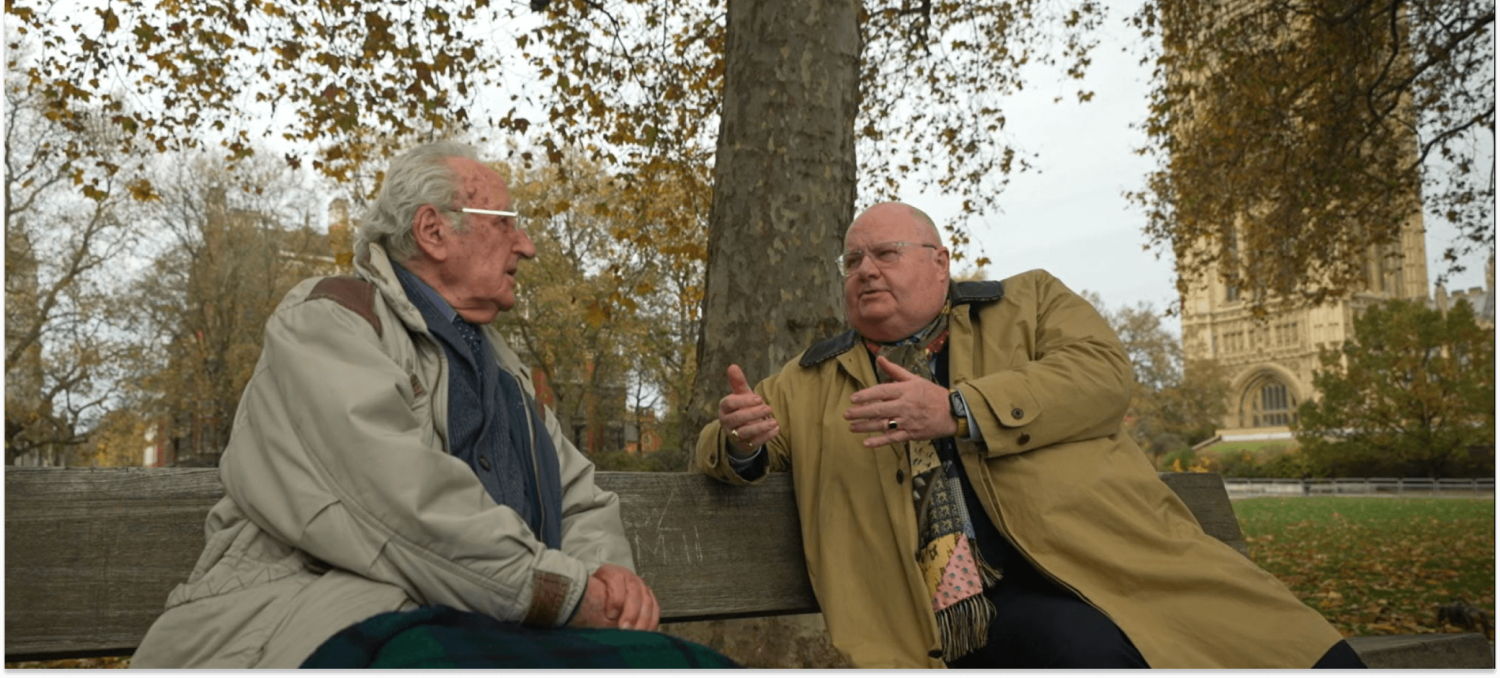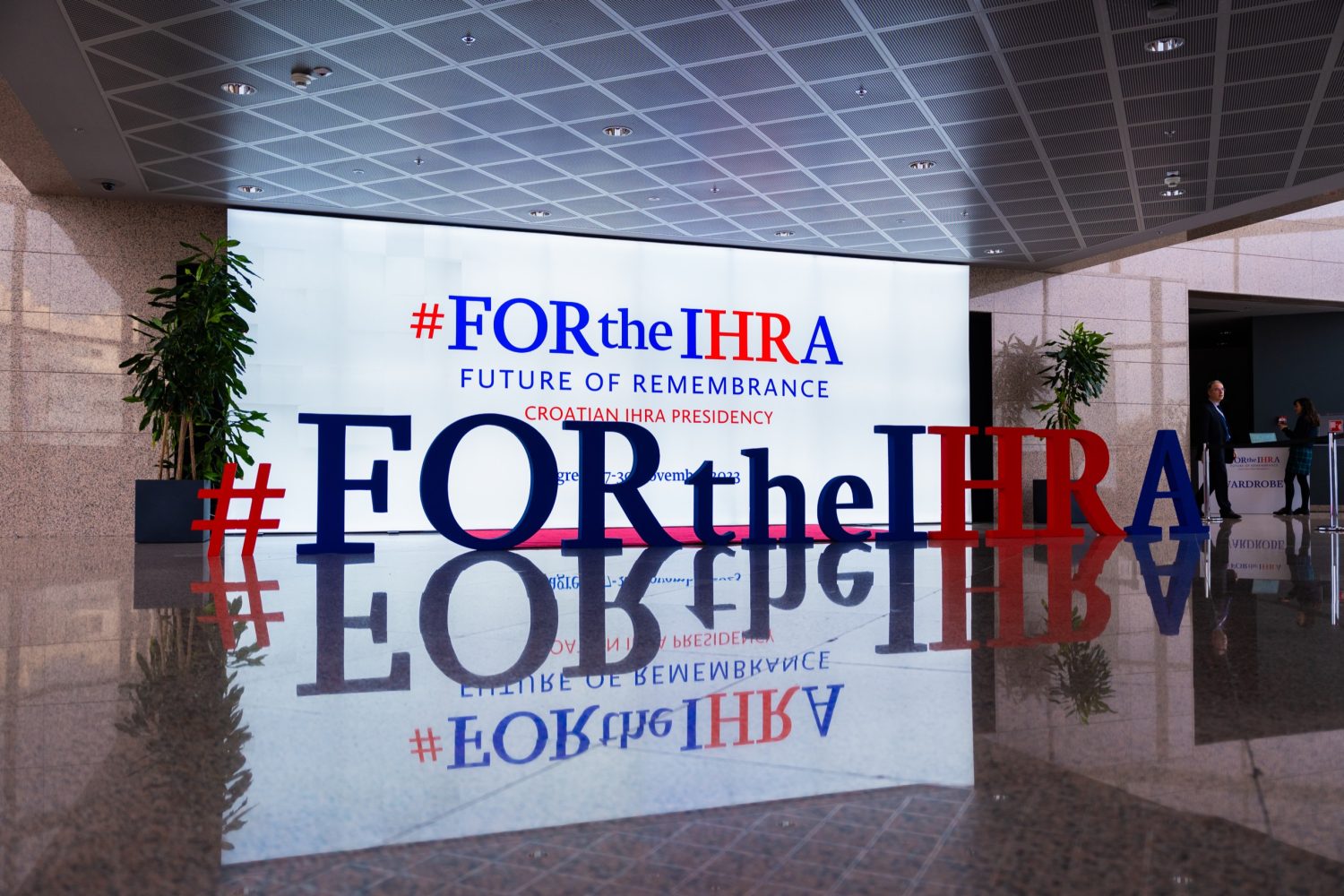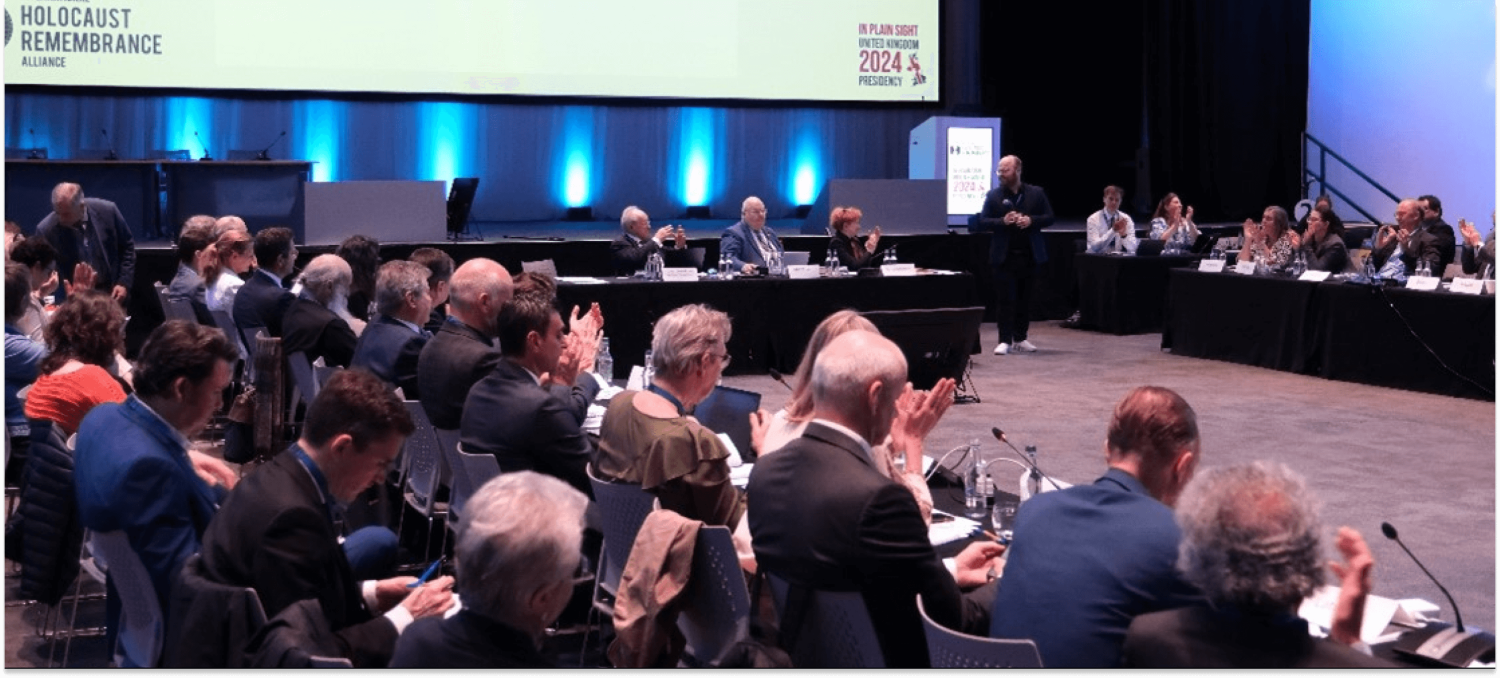


Learning from the past, shaping the future at the Glasgow IHRA Plenary
GLASGOW, Scotland (June 27, 2024) – The International Holocaust Remembrance Alliance (IHRA) concluded its successful Plenary meetings in Glasgow, Scotland, on 27 June 2024. The theme, “In Plain Sight,” was prompted by a deeply moving conversation that Lord Eric Pickles, the Chair of the UK Presidency, had with Holocaust survivor Ivor Perl, who emphasized that the horrors unfolded not in darkness, but “in broad daylight, with the world watching on.” Lord Pickles’ experience underscores the importance of remembering the Holocaust not as a distant, shrouded event, but as a tragedy that took place “in plain sight,” demanding continued vigilance.
The UK Presidency prioritized strengthening the IHRA’s procedures and effectiveness during its first Plenary. A highlight of this was the newly-introduced crosscutting session on antisemitism held at the start of the week. It brought together all delegates in attendance – over 200 experts and diplomats from 35 Member Countries and 8 Observer Countries. This session fostered knowledge-sharing across all levels to create a platform for reaffirming a common focus, while addressing existing obstacles and the need for collective effort. As Lord Pickles, aptly noted, “As our work becomes harder, it also becomes more important.” The success of this session ensures its continuation at future Plenaries, providing a valuable space to explore issues that guide the work of delegations, Working Groups, and Committees.
Photos from the IHRA Plenary in Glasgow
Credit: Eloise Bishop
The Plenary meetings also focused on ways in which the IHRA could take its work in the field forward, including by translating the tools already created into effective action. With the launch of the Archival Access Forum, Member Countries will now be able to share best practices and address challenges related to accessing and preserving Holocaust-related archival materials. The forum is in its pilot phase and expected to be ready to take off fully by the next Plenary in December 2024.
Ongoing UK Presidency projects – “My Hometown” and “History of the Holocaust in 80 Objects,” were also presented during the week. “My Hometown” encourages schoolchildren above the age of fourteen to engage with local histories of the Holocaust and Nazi persecution of other groups. A video showcased the pioneering work of Domonic Townsend, a teacher who presented the project’s impact on his school and city. Mr. Townsend was there to address the Plenary – sharing how his work aligns with IHRA’s vision, and inspiring others to participate. The project has already garnered interest from numerous Member Countries, with more expected to join by the London Plenary, where participating schools will be recognized and showcase their work.
Further building on the Plenary’s theme, discussions also focused on the increasingly complex relationship between antisemitism and emerging technologies like artificial intelligence (AI). “The rise of AI presents both opportunities and challenges for Holocaust remembrance and education,” Lord Pickles noted. “While AI can be a powerful tool for research and outreach, it’s crucial to address the potential for AI to be misused to perpetuate antisemitic narratives and disinformation.”
The Plenary participants recognized the importance of proactively addressing this issue and agreed to continue the conversation at the London Plenary. The UK Presidency plans to host a specific workshop on AI and antisemitism ahead of the London meetings, fostering further collaboration and action.
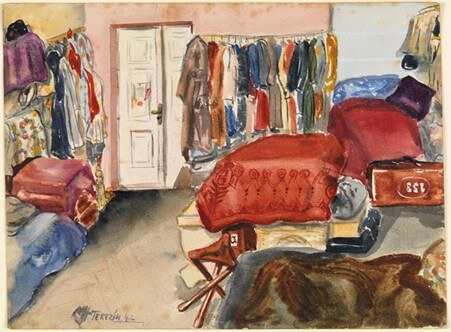
Watercolour / Youth Room © The family of Marianne Grant
The Plenary extended beyond formal meetings – encouraging public engagement and ongoing dialogue. The UK IHRA Presidency showcased its efforts to combat antisemitism in sports at Hampden Park, Scotland’s national stadium, including the launch of its guide to implementation of the IHRA working definition of antisemitism for sporting institutions. Geraldine Shenkin, daughter of Holocaust survivor Marianne Grant, delivered a powerful speech at the Kelvingrove Art Gallery and Museum. Her words, highlighting her mother’s life and work, underscored the enduring importance of the IHRA’s mission in the present day. Marianne Grant, a Czech-Scottish Jewish artist survived three concentration camps. Originally from Prague, she settled in Glasgow after the Second World War. Delegates could view her artwork, now housed in the permanent exhibition at the museum.
John Swinney, First Minister of Scotland, and Leader of the Scottish National Party, also spoke at the event. He emphasized the importance of IHRA’s work by quoting Primo Michele Levi, chemist, author, and Holocaust survivor: “The Holocaust is a page from the book of humanity from which we should never remove the bookmark of memory.” Building on this theme, Lord Pickles further highlighted IHRA’s role in his closing speech. “The truth, my friends, is this: the IHRA is the bookmark,” he said. “The IHRA is here to ensure that the memory of those who suffered under the Nazis and their collaborators will never be forgotten.”
With a continued focus on strengthening the IHRA’s effectiveness and cooperation, and the combined expertise and skill of its members, the IHRA is well-positioned to continue confronting historical challenges and present complexities. The London Plenary in December 2024 will provide a platform for further progress on strengthening procedures, fostering cooperation and exchange, and addressing the challenges posed by AI and antisemitism.
Sign up to our newsletter to
receive the latest updates
By signing up to the IHRA newsletter, you agree to our Privacy Policy

